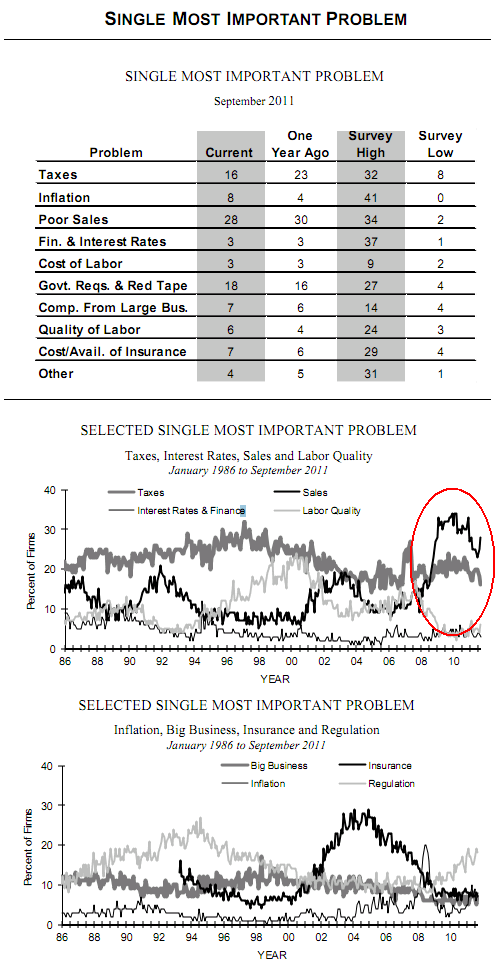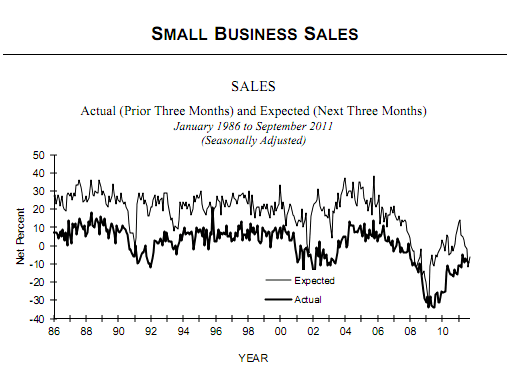It’s impossible to turn on the news without hearing all the excuses drummed up by various politicians for why the economy is weak. The usual suspects are taxes, inflation, crowding out (interest rates), and government regulations. But a pretty definitive answer can be developed when one looks at the NFIB’s small business surveys.
For instance, this morning’s data asked participants what the “single most important problem” for their business is. And by a wide margin, the participants said sales. It’s weird how businesses work. When there is demand for their goods and services they tend to expand, spend, reinvestment, etc. When demand is weak they tend to contract or go out of business. Now, it’s clear that businesses have a lot of different issues to deal with and government can certainly get in the way to a large degree, but this data should put an end to what is currently causing the weakness in the U.S. economy and leading to a lack of hiring.
As you can clearly see, the only data point here that surged in 2008 was sales (the oil price scare in 2008 caused a brief inflation spike). There was no surge in regulation, taxes, interest rates, etc (all of which have tended to bounce in some range since the surveys began, ie, these are always nuisances for businesses). There was a massive collapse in corporate revenues and they responded by cutting their costs and boosting their margins in an effort to protect their bottom lines. It’s really that simple.

Unfortunately, the recent data doesn’t show much of a rebound in sales. In fact, expectations for future sales are quickly dropping….

Source: NFIB
Mr. Roche is the Founder and Chief Investment Officer of Discipline Funds.Discipline Funds is a low fee financial advisory firm with a focus on helping people be more disciplined with their finances.
He is also the author of Pragmatic Capitalism: What Every Investor Needs to Understand About Money and Finance, Understanding the Modern Monetary System and Understanding Modern Portfolio Construction.

Comments are closed.